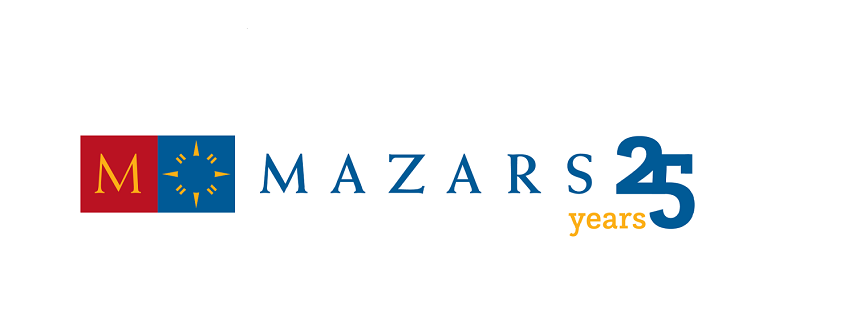Luxury Goods
Fri | 12.06.2020
Accounting/audit/tax
According to Mazars, the global luxury market was forced to reckon with a massive economic downturn, registering a sales decline of 25% to 30%. To improve their profitability, luxury brands can optimize investments, decrease costly inventory or develop new processes for distribution, supply, sales, and delivery.
One of the most eye-catching particularities of the luxury industry is that spending is regularly based not on reasoning, but on emotions and feelings.
The new generation of consumers is much more aware of the brands they look to invest in, just because they are searching for something familiar with their own values and vision of the world. While some people are going back to their roots, for others luxury supports their identity, it is something that perceives more than the function it provides.
Invited at the Mazars' Forum in 2019, Li Edelkoort, one of the world's most famous trend forecasters, mentioned that „It’s the younger generation which is going to change our world. You can feel it, you can see it, it’s happening and it’s incredible the way they are doing this.” There is a need to reverberating the shamanistic part of us, the link to the ancestors, due to the ocean of content that influences our lives daily.
While this unexpected challenge will undoubtedly have a strong impact on society, it is unlikely to affect the very roots of human nature.
Read more info HERE.
Corporate Governance, the bridge between compliance and trust
Driven by the need to build a strong relationship with all stakeholders and attract investors, forward-thinking companies have adopted sound Corporate Governance principles, through which they can facilitate effective risk management.
In Romania, in 2018, only 4% of the analyzed companies achieved 100% compliance level. 20% registered a level above 80%, 52% of them between 50% and 79%, while 28% had a compliance level below 50%.
The companies listed for over 10 years on the Romanian market registered the lowest average compliance level (56% in 2018), compared to the most recently listed companies, but the compliance level increased with the capitalization value.
In the current context, there is a need for changes in strategy but also in the customer and supplier interactions to adjust to the “low touch economy”, combined with the current working-from-home environment, all based on a new IT architecture with more automated processes.
With the help of a sound Corporate Governance, the top management can monitor the vulnerabilities which have the greatest potential to disrupt the business – and share its plans to mitigate those threats – to illustrate to investors the organization’s proactive approach to enterprise risk. In this way corporate governance becomes a bridge between compliance and trust.
Read more info HERE.
Mazars’ perspective on the management of the tax liabilities
One of the key measures adopted during this period by the Romanian Government touches on the management of the tax liabilities. Mazars experts shared their perspective on this topic, talking about the following:
Taxpayers must pay on June 25th the tax liabilities for the past four months
In the current legislative context, the taxpayers who decided to postpone the payment of the tax liabilities during the application of this facility (having as due date March 25th, April 25th, and May 25th), will have to pay these amounts on June 25th, 2020. This means that some of the taxpayers, namely those which did not pay their tax liabilities during this period due to lack of liquidities, will have to pay their tax obligations for the past four months on June 25th.
The ancillary obligations may be canceled, subject to the fulfillment of the compliance and of payment obligations by December 15th, 2020
Embracing the idea of relieving the fiscal burden and increasing tax collection, the Romanian Government adopted several normative acts which provide the annulment of the ancillary tax obligations, subject to the taxpayer fulfilling its compliance and payment obligations by December 15th, 2020.
The tax periods related to the State of Emergency did not generate any major transactions
In the case of certain taxpayers for which the fiscal year is the same with the calendar year, the tax burden with significant impact consisted in the annual corporate income tax, which was due on 25th March 2020, as the fiscal periods related to the State of Emergency did not generate any major transactions. Although the annulment of the ancillary tax obligations is not precisely the support expected by most of the Romanian taxpayers (in particular those who opted to postpone the payment of the tax liabilities), this measure was conceived to increase both voluntary compliance and the collection rate.
Read more info HERE.
2025
2024
-
November (1)
-
October (1)
-
July (1)
-
May (1)
-
March (1)
-
February (1)
-
January (1)
2023
-
November (1)
-
September (2)
-
August (2)
-
June (1)
-
May (1)
-
April (2)
-
March (1)
-
February (2)
-
January (2)
2022
-
December (3)
-
November (4)
-
October (3)
-
September (4)
-
August (3)
-
July (6)
-
June (4)
-
May (4)
-
April (8)
- Marketing News by diARK - April 2022
- Finance News by Mazars Romania - April 2022
- Experience the Perfect Chauffeur Transfer with David Intercar
- Mobility News by Business Lease - April 2022
- NRCC MEMBER IN SPOTLIGHT, WOLTERS KLUWER
- Crowe Romania and DeclaratiaUnica.ro engage in the automation of the single return form and the offering of personalized consultancy
- Cryptocurrency News by Bitcoin Romania, April 2022
- Legal News by BBW LAW - April 2022
-
March (6)
-
February (4)
-
January (5)
2021
-
December (3)
-
November (4)
-
October (2)
-
September (2)
-
August (1)
-
July (5)
-
June (3)
-
May (5)
-
April (4)
-
March (7)
- Cryptocurrency News by Bitcoin Romania, April 2021
- HR News by CNA International Executive Search Romania, March
- Real Estate News by CTP Invest, March 2021
- Sale-Purchase of Agricultural Land Located Outside Build-Up Areas
- MEET THE NRCC BOARD CANDIDATES 2021
- Fleet Management – Complete Makeover or Small Adjustments?
- Cryptocurrency News by Bitcoin Romania, March 2021
-
February (5)
-
January (6)
2020
-
December (2)
-
October (2)
-
September (3)
-
August (2)
-
July (6)
- NRCC Member in Spotlight Interview - Autonom
- Insolvency Proceedings: New Rules
- Member in Spotlight, UniCredit Bank
- Financing opportunities overview for large enterprises, SMEs and other organizations
- Companies: Simplification of Formalities
- Call for Leaders | What is your readiness score to benefit from the EU SURE initiative?
-
June (5)
-
May (8)
- The State of Alert. New rules for the collective proceedings
- The Retail Industry
- EU grants up to 6 Mil Euro for SME-s investment projects
- Member in spotlight, Heisterkamp Transportation Solutions
- State of Alert...What Is New
- The forced transformation of the automotive industry – Mazars analysis
- State of Alert in Romania
- Reducing the Impact of the Pandemic
-
April (6)
-
March (2)
2019
-
November (2)
-
July (1)
-
June (1)
-
March (2)
-
January (1)
2018
-
October (2)
-
September (1)
-
August (1)
-
July (3)
-
June (2)
-
May (1)
-
April (1)
-
March (3)
-
February (13)
- NRCC Elections 2018 - Elena Badea
- NRCC Elections 2018 - Loreda Dragomir
- NRCC Elections 2018 - Simina Fodor
- NRCC Elections 2018 - Manuel Herraiz Orti
- NRCC Elections 2018 - Tom Leene
- NRCC Elections 2018 - Mircea Moga
- NRCC Elections 2018 - Ronald Oort
- NRCC Elections 2018 - Razvan Pascu
- NRCC Elections 2018 - Alexandru Popescu
- NRCC Elections 2018 - Mihaela Tudor
- NRCC Elections 2018 - Loredana Van de Waart
- NRCC Elections 2018 - Edwin Warmerdam
- NRCC Elections 2018 - Philip Aarsman
2017
-
November (1)
-
September (1)
-
August (2)
-
May (1)
-
April (2)
-
March (1)
2016
-
November (1)
-
September (8)
-
June (1)
-
February (2)








